Why Is My Pregnant Cat Licking Herself a Lot? Is It Normal?
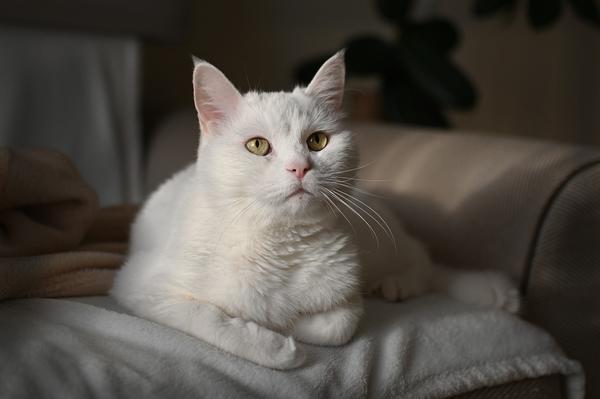
Worried sick about why your pregnant cat won't stop licking herself?
I get it, you're probably thinking she's got some rare disease that's gonna put her and her babies in danger.😱
You're scared she's gonna disappear down some Google rabbit hole that makes you even more freaked out.
Well, take a deep breath and relax.
Let's get to the bottom of this and put your mind at ease.
Shall we begin?
Common Causes of Excessive Licking in Pregnant Cats
When pregnant cats start licking a lot, there are a few reasons you should know about. Here are some common causes of excessive licking in pregnant cats:
- Hormonal changes: Pregnancy messes with a cat's hormones, making them more sensitive and leading to more licking.
- Gestation period: During the nine-week gestation period, it's normal for cats to lick a ton. First-time moms and cats with multiple litters do it the most.
- Targeted areas: Pregnant cats focus their licking on certain body parts like the belly, breasts, genitals, and paws. This helps them get ready for giving birth and nursing.
- Recent cleaning or surgery: Some pregnant cats go crazy with licking after cleaning their privates or while recovering from declawing surgery.
- Behavioral changes: When pregnant, cats might change the way they eat, drink, use the litter box, and groom themselves. If they're licking excessively, it could mean they're stressed or have underlying health conditions like hyperthyroidism or diabetes.
- Physical changes: Throughout pregnancy, a cat's body transforms visibly. Their mid-section gets thicker, overall size increases, and nipples change shape, color, and size as well. These are signs of pregnancy.
Recognizing the potential causes, owners of pregnant cats can enhance their ability to identify and manage excessive licking. 👀
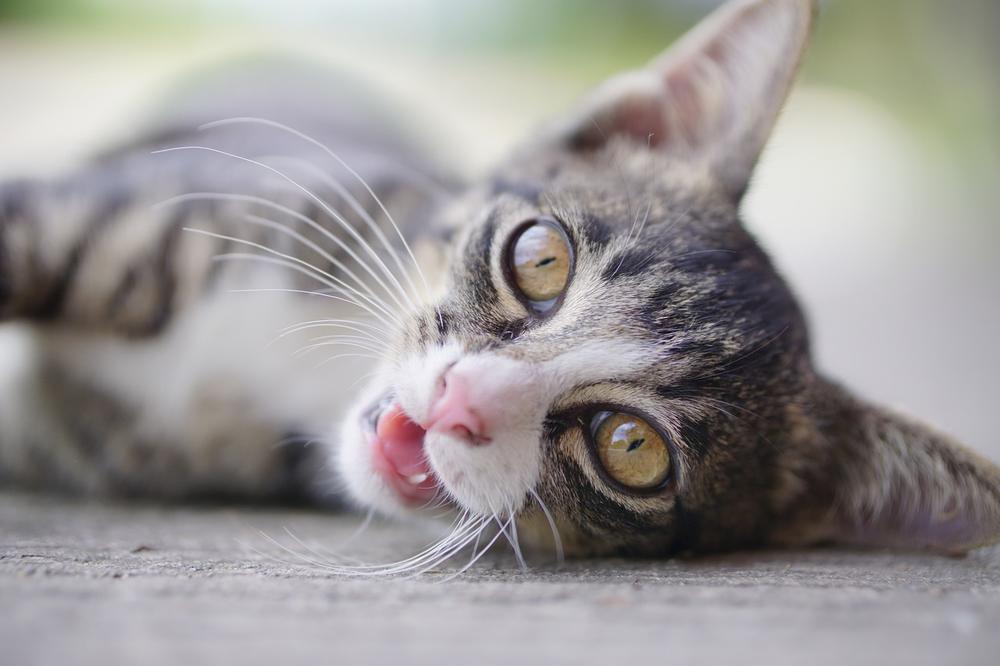
And if you find yourself wondering why your pregnant cat is vomiting, I urge you to check out my informative guide on Pregnant Cat Vomiting.
Within this article, you'll discover helpful information and solutions to address this concern.
Don't let uncertainty leave you in the dark; take action and ensure the well-being of your expectant feline companion.
Do Cats Clean Themselves Before Giving Birth?
Pregnant cats instinctively groom themselves before giving birth
You know what's amazing?
Pregnant cats have this incredible instinct to sense when they're about to give birth.
And do you know what they do?
They start grooming themselves like crazy!
It's not just about looking good, though.
The importance of monitoring grooming habits during childbirth
Now, you might be wondering why it's so key to pay attention to a cat's grooming habits during childbirth.
Well, let me tell you why it matters:
When a cat is about to go into labor, she starts licking herself excessively.
And no, it's not just about her appearance for the big moment.
This excessive licking actually helps stimulate the delivery of those precious little kittens.
Isn't that fascinating?
But wait, there's more to it...
This grooming also serves other purposes, such as removing old fur, aiding in the digestion of the kittens, and promoting cleanliness.
It's like your cat is preparing the ultimate spa day for her little ones!
Behaviors and signs of labor in pregnant cats
Now, if you want to know when those adorable bundles of joy are about to make their grand entrance, there are some signs you can look out for.
Cats in labor often display behaviors such as licking in the genital area, panting, crying, restlessness, excessive vocalization, and having a larger abdomen (just like in humans!).
They may even pass gas (yes, really!), arch their back while pushing, paw at the ground, and meow loudly. And guess what?
Each kitten takes about 20 to 30 minutes to come into the world.
Talk about a marathon!
Oh, and here's another interesting thing.
During her pregnancy, your cat might act a bit different.
She might hide for privacy during labor, show more affection towards you (because you’re her rock during this exciting time), and begin that self-grooming routine about 30 days before the big day.
Plus, she might even become extra friendly and rub against your legs or headbutt you.
It's her way of saying, "Hey, I'm ready to be a mom!"
So, make sure you're prepared by creating a nice secluded spot for her to give birth.
And don't be surprised if she starts grooming herself intensely - it's all part of the magical process!
If you're feeling concerned or curious about traveling with your pregnant cat, I advise you to check out Can You Travel With a Pregnant Cat. You'll find helpful tips and advice in my blog post to ensure the safety and comfort of your feline friend during the journey.
But how can you ensure the well-being of your pregnant cat during labor and delivery?
Let me share some essential tips with you!
How to Care for a Pregnant Cat
To care for a pregnant cat and ensure her well-being during labor and delivery, here are some important tips:
- Create a separate nesting area with comfortable bedding where she feels secure. This will provide her a safe space to give birth and nurse her kittens.
- Adjust her diet with higher quality food to support the increased energy consumption and weight gain. Look for cat foods specifically formulated for pregnant cats.
- Monitor her health throughout the pregnancy and have regular vet checks. Cat pregnancies come with certain risks, so it's important to stay on top of any potential issues.
- Prepare a warm and stress-free environment for the birthing area. Keep noise, children, and other pets away to minimize disruptions and create a calm atmosphere.
You have to provide the necessary care and attention to your pregnant cat to ensure a smooth and healthy pregnancy.
Remember, always consult with a veterinarian for the best advice tailored to your cat's specific needs. 😺
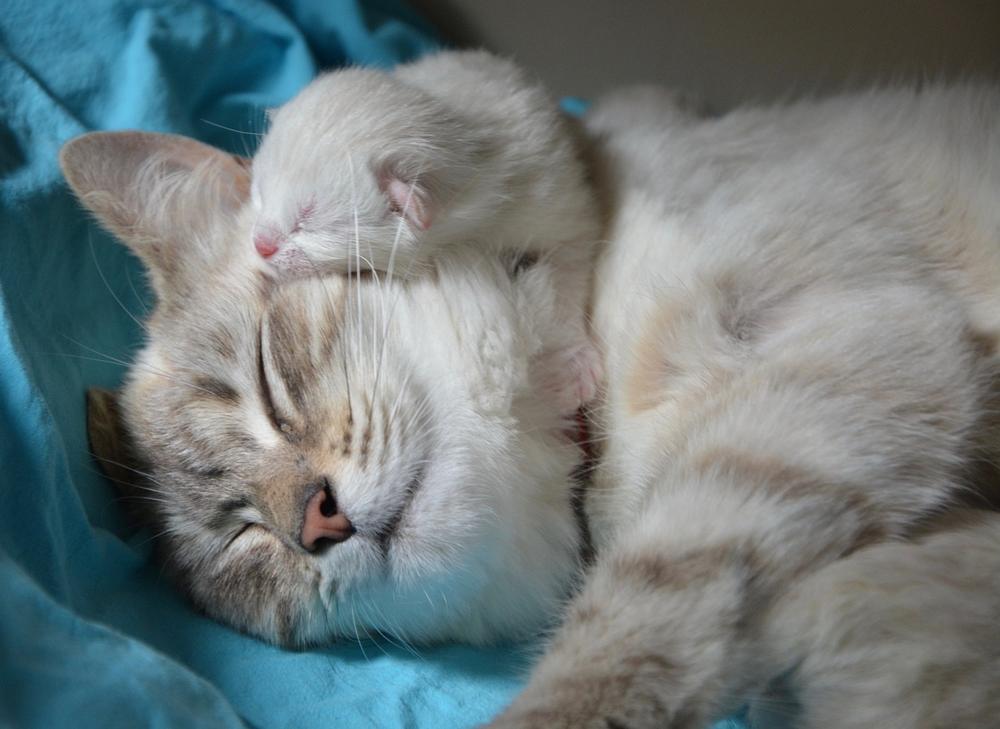
But what about the pregnant cat who incessantly licks herself?
Is this behavior normal or a cause for concern?
Let's delve into the reasons behind this behavior in our furry expectant mothers and what you can do to ensure their well-being during this crucial time...
When to Seek Veterinary Advice for Excessive Licking in Pregnant Cats
If your pregnant cat is excessively licking and you're unsure when to seek veterinary advice, here are 10 signs to look out for:
- Lack of appetite.
- Lethargy or a decrease in energy levels.
- Vomiting.
- Diarrhea.
- Other signs of illness or abnormal behavior.
- Persistent belly licking for over an hour daily.
- Signs of distress during contractions, such as loud vocalizations or whimpering.
- Discharge of blood or other fluids.
- Irregularities during labor, including prolonged panting, excessive noise-making, scratching, restlessness, or biting.
- Any concerns about the health of the mother or kittens.
Pregnant cats may engage in normal licking of their belly and vagina, but if they show signs of illness or continued abnormal licking, you should seek veterinary attention.
Monitor the birthing process closely at home, but be prepared to contact your vet immediately if you notice any irregularities.
An ultrasound can also be beneficial in confirming the pregnancy and ensuring the well-being of both mother and kittens.
Understanding the Reproductive Cycle of Cats
Cats can go into heat as early as six months old, and knowing their heat cycle helps you prepare for possible pregnancies. Feral cats, like any other cats, sometimes experience interrupted labor that can last up to 36 hours.
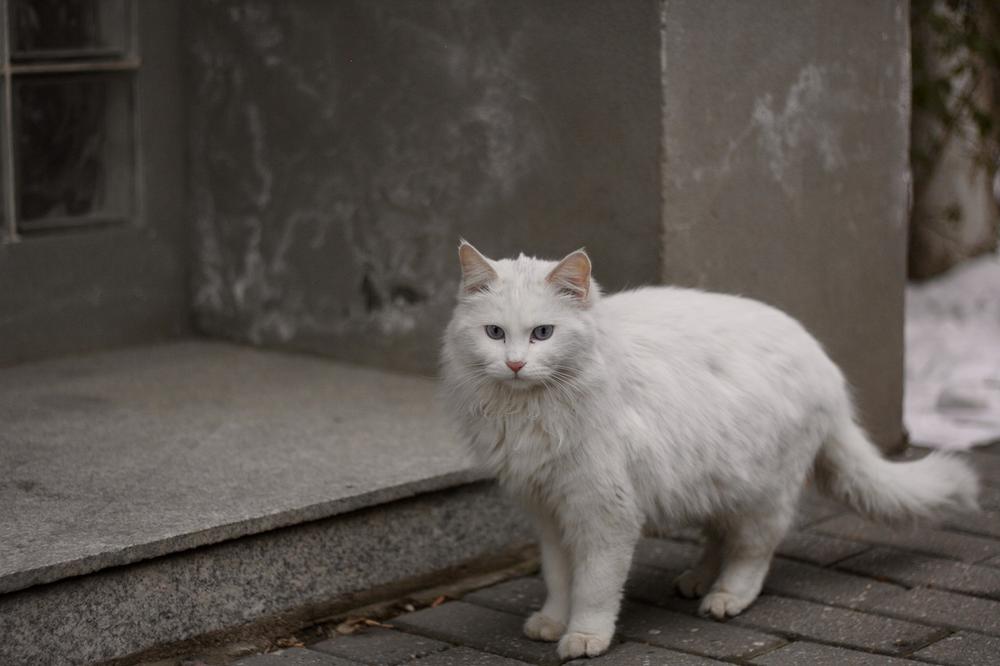
While pregnant, hormonal changes often lead to excessive self-grooming.
However, if this suddenly stops, there is usually no need to worry. As labor nears, cats may display rapid breathing and panting, making it seem like they're overheated and extra thirsty. Additionally, cat pregnancies generally last around nine weeks.
What to Do After Your Cat Gives Birth?
After your cat gives birth, there are several things you can do to assist the mother cat and ensure the well-being of the newborn kittens.
Firstly, monitor the mother cat closely for signs that labor is nearing the end of her pregnancy.
This includes restlessness, increased vocalization, and nesting behavior.
Next, ensure you have essential items ready for the birth, such as a microwaveable beanie bag to help keep the kittens warm.
During the birth itself, you should clean the newborn kitten's mouth and nose to ensure proper breathing. If necessary, tear open the amniotic sac, dry the kitten, and warm it with a towel.
It's also crucial to help the kittens onto their feet to prevent chilling. However, maintain a safe distance during labor, as the mother cat may vocalize or potentially spray.
After assisting the kittens, wash their mouths and noses with warm water before returning them to the mother.
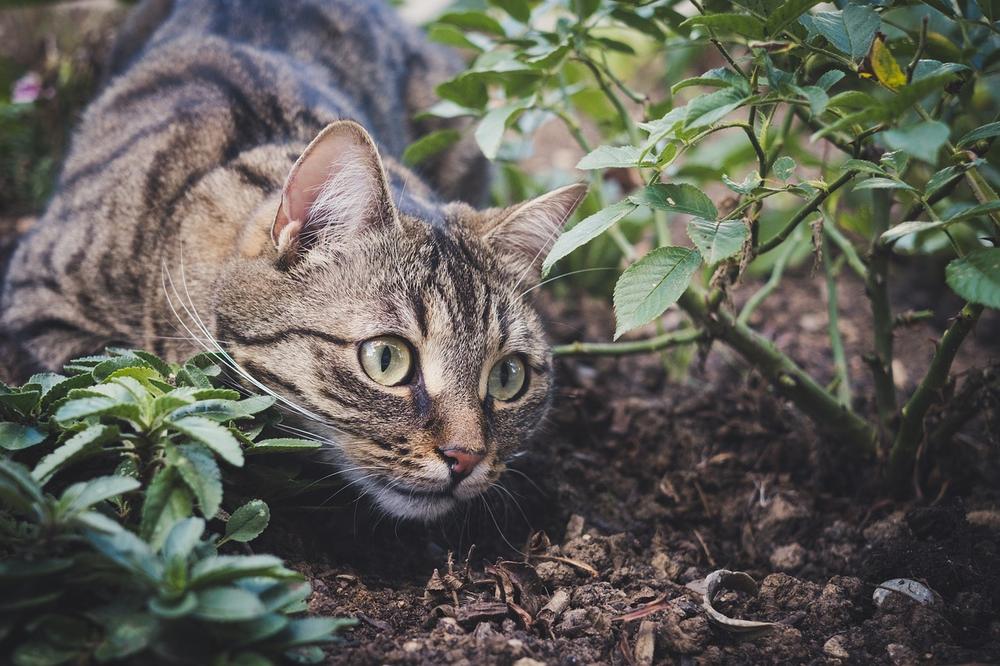
Massaging the mother cat's uterus can help expel any remaining fluids.
Remember that labor consists of three stages:
Nesting, pushing, and passing the placenta, which can take up to 24 hours.
If there is a gap of three hours between delivering kittens, seek immediate veterinary assistance.
After nursing, the mother cat's belly will shrink, and she should pass the afterbirth shortly after.
If the last kitten isn't born within 24 hours, it may require veterinary intervention.
Lastly, create a suitable birthing environment by providing a quiet, dimly lit, comfortable, and secluded space for the nesting cat, such as a lined basket or cardboard box.
With these tips in mind, you can ensure a safe and healthy delivery for your cat and her kittens. 🐱
Wrap-up
Key Takeaways:
- Excessive licking during pregnancy is normal, especially for first-time or multiple-litter cats.
- Licking serves multiple purposes, including grooming, initiating labor, and maintaining hygiene.
- Changes in eating, drinking, using the litter box, and grooming habits are common during pregnancy.
- Excessive licking can indicate stress or underlying medical conditions.
- Signs of pregnancy include mood/behavior changes and physical changes in the nipples and body size.
- Monitor grooming habits closely before and during childbirth.
- Signs of labor include licking in the genital area, panting, restlessness, and larger abdomen.
- Changes in behavior during pregnancy involve increased affection towards caregivers and friendly behaviors.
- Prepare for birth by creating a secluded, stress-free environment and providing proper nutrition.
- Seek veterinary attention if there are signs of illness, prolonged excessive licking, or abnormalities during labor.
- Feral cats may experience interrupted labor lasting up to 36 hours, but abrupt cessation of excessive licking is generally not concerning.
- Cats can enter their heat cycle as early as six months of age, with pregnancy lasting approximately nine weeks.
- Monitor closely for signs of labor and be prepared with essential items.
- Assist in the birth if necessary, dry and warm newborn kittens, and contact a vet if there are any complications.
- Labor consists of nesting, pushing, and passing the placenta stages.
And that wraps up today's article.
You made it to the end of my blog post, so how about sharing your thoughts? Did you enjoy reading it? I poured a great deal of time and effort into crafting comprehensive and valuable blog posts. It truly brings me joy, so it would mean the world to me if you could consider clicking on any of the social sharing buttons to spread the word about this post. Thank you so much!
Talk soon,
-Sarah Davis